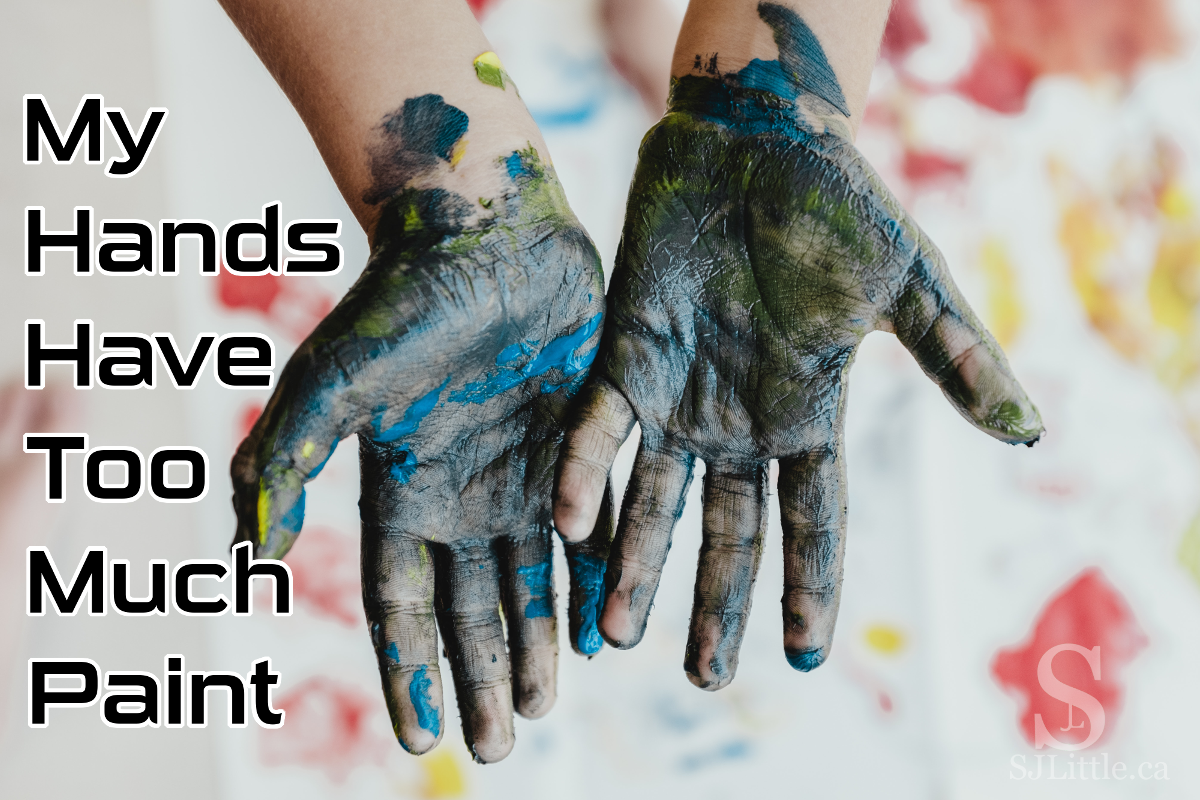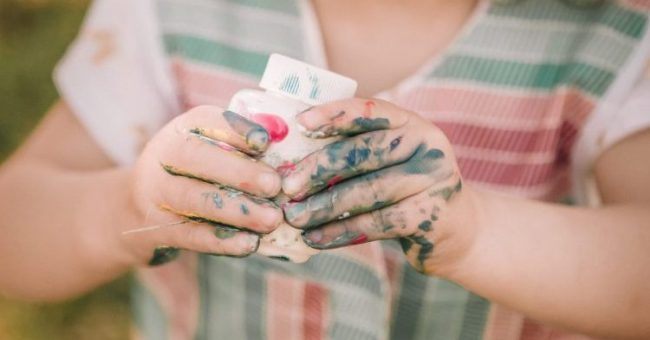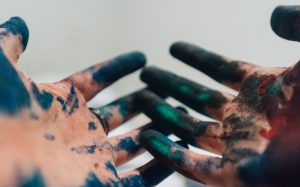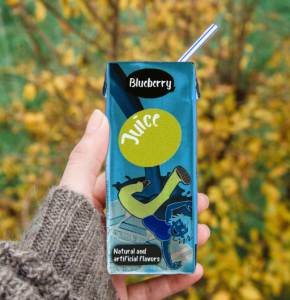
I need to wash my hands first
“Are you finished?” I ask a preschooler as I point to the bright picture in front of him.
His hand pauses mid-air, still holding his sponge.
“Um… Yes.” He puts the sponge back in the paint tray and smiles up at me.
“You did a good job on your painting.” I remark. “I like how hard you worked on it.”
His smile brightens as I lift the wet painting and move it to the drying rack.
I glance at his hands. “Looks like you need to wash your hands.”
He looks at his red and green fingertips. “Yeah.”
“Come on over,” I invite, “I’ll help you wash.”
As he moves toward the sink, I glance at the other preschoolers to ensure they are still fully engaged in painting.
Satisfied, I hold his hands to help him climb onto the stool without touching the walls.
I turn on the water and encourage him to wash his hands.
He lets the water run over his hands. The paint is still there.
He looks at me. “It’s not working.”
“Here, I can help you.” I take his hands in mine and start rubbing.
Immediately, his hands look more coloured. Rather than just red and green, his hands now have black and blue as well.
I frown, then look at my own hands.
Sure enough, I’d forgotten that I had accumulated a thick layer of paint on my own hands.
“Uh oh,” I say, “I forgot to wash my hands first. You rub your hands.”
Releasing his hands and moving my own hands underneath, I quickly rub the paint off them.
A glance at my hands tells me they’re paint-free now.
I take his hands once more. “Let’s try again.”
This time, as I rub his hands, the paint easily comes off. It takes a little longer because of the black and blue paint I’d inadvertently added, but soon his hands are paint-free too.
I hand him a paper towel and help him climb down.
“You go play,” I say.
“Ok,” he calls as he hurries off.
I can’t tell you how many times I’ve done that. So often, when helping my preschoolers paint, I get paint on my own hands. Rather than wash my hands every few seconds, I simply rub the paint until it’s dry so I can continue helping other children.
This wouldn’t be a problem, until I try to help them wash their hands. The water restores the paint on my hands and, suddenly, I’m making their hands worse rather than better.
This reminds me of something Jesus said.
“Why do you look at the speck of sawdust in your brother’s eye and pay no attention to the plank in your own eye? How can you say to your brother, ‘Let me take the speck out of your eye,’ when all the time there is a plank in your own eye? You hypocrite, first take the plank out of your own eye, and then you will see clearly to remove the speck from your brother’s eye.” Matthew 7:3-5 NIV
I needed to wash my hands before I could be of any use in helping the child wash his hands.
The same is true when we’re trying to help someone. My heart has to be right with God before I can effectively help anyone else get their heart right with God.
Does God use imperfect people? Absolutely! I’m one of them.
It is not that we must be perfect and have everything figured out. No, but we must have our hearts right with God.
As David said, after he’d sinned,
“Create in me a clean heart, O God, and renew a right spirit within me… Then I will teach transgressors Your ways, and sinners will return to You.” Psalm 51:10,13 ESV
Paul, too, talked about something similar when he said:
“Brothers and sisters, if someone is caught in a sin, you who live by the Spirit should restore that person gently. But watch yourselves, or you also may be tempted.” Galatians 1:6 NIV
With these verses in mind, I must be intentional to seek God first. My relationship with Him must be right in order for me to be effectively able to help those around me.
Oh, that I would keep my hands continually washed clean so that I can be useful for helping others.



